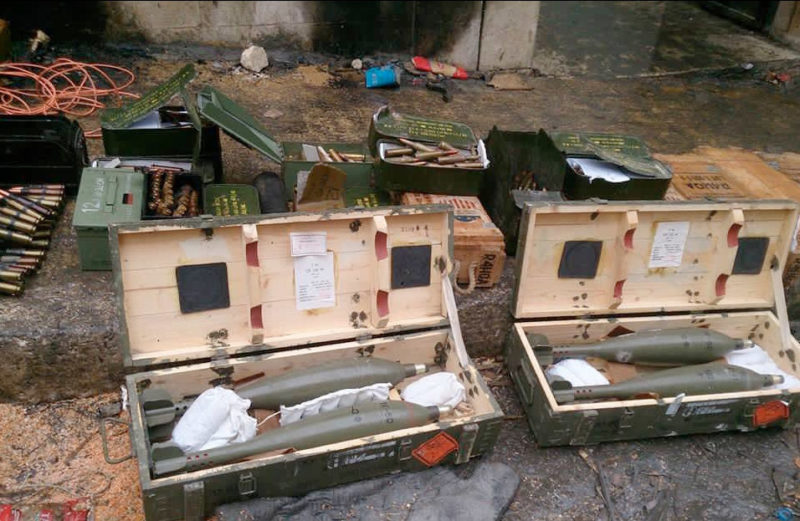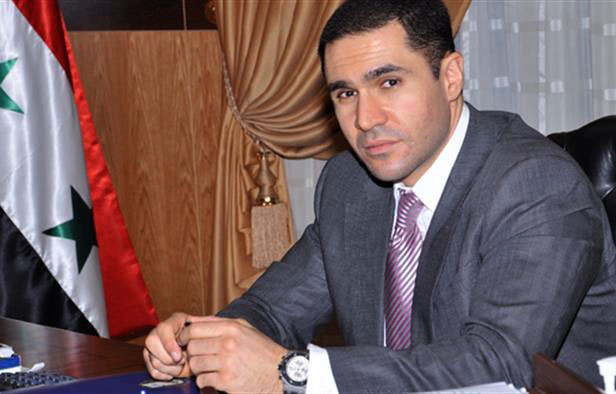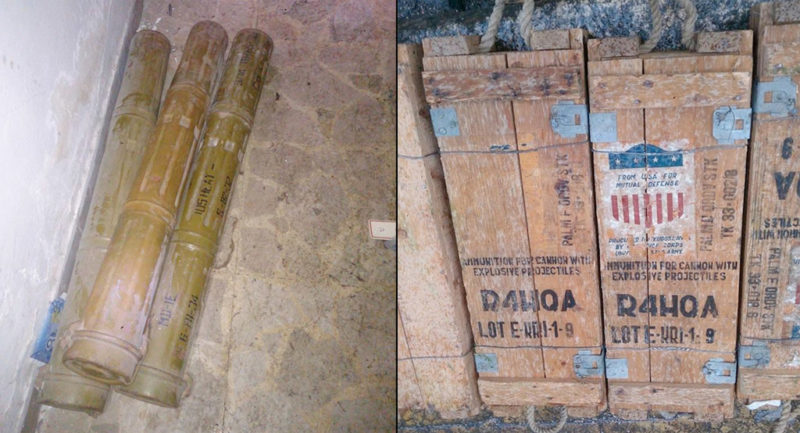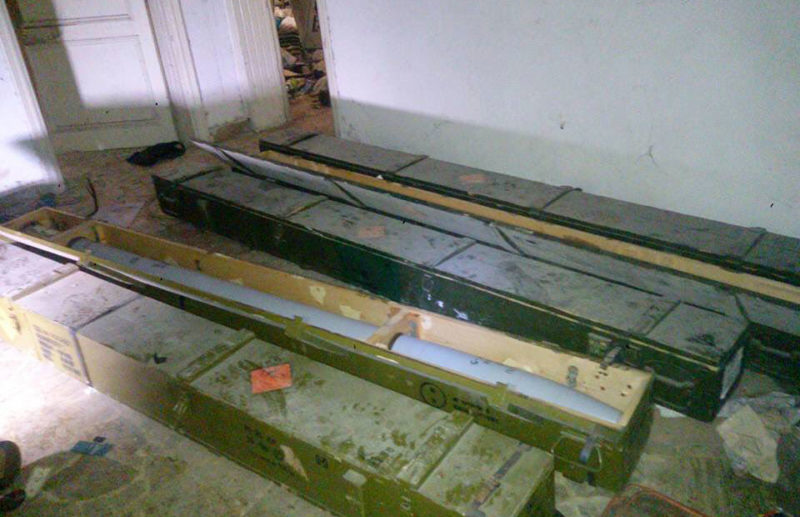Pakistan has been facing an unstable security situation for years. Thousands have been killed and many others injured in the terrorist attacks. Although the security situation has significantly improved since launch of operation Zarb-e-Azb in mid-June 2014, terror attacks have not just dropped a bit. It is down by three quarters in the last two years.
A latest study conducted by the Pakistan Institute for Conflict and Security Studies (PICSS) shows that incidents of terrorism were down by 30 percent in 2016 as compared to the previous year.
The decline is attributed to the successful military operation in the tribal areas, once considered a stronghold of local and foreign militant groups.
Pakistan started implementing the new anti-terror strategy in the aftermath of massacre committed by Deobandi Tehreek-e-Taliban terrorists at an army-run school in Peshawar in December 2014.
The number of terrorist attacks in Pakistan may have declined in 2016 but the year witnessed some major attacks in terms of casualties. Authorities claim that the recent attacks were the sign of desperation on the part of militants who suffered serious setbacks as a result of the government’s intense anti-terror campaign in the last couple of years.
Details of this year’s major incidents of terrorism-related violence in Pakistan have been mentioned below:
JANUARY
Jan 13: A suicide blast near a polio vaccination center killed at least fourteen people including 12 policemen and injured more than ten in Satellite Town area of Quetta.
The policemen had gathered outside the centre for security of polio workers, who are frequently subjected to terrorist attacks in Pakistan, particularly in the violence-wracked province of Balochistan, of which Quetta is the capital.
No group claimed responsibility for the attack.
JAN 19: A suicide bomber killed at least 10 people in a rush-hour attack on a market on the outskirts of Peshawar..
JAN 20: Around four terrorists entered Bacha Khan University in Charsadda district, roughly 50 kilometres (30 miles) from the city of Peshawar, killing 21 people and injuring more than 15.
All four attackers were killed as police, soldiers and special forces launched a ground and air operation at the university.
FEBRUARY
FEB 06: At least nine people were killed and 35 wounded when a suicide bomber blew himself up near a military convoy in Pakistan’s western city of Quetta.
FEB 18: Militants shot and killed at least nine security forces personnel in two separate attacks in a volatile northwestern region, security and government officials said.
Two members of the Khasadar paramilitary force on guard duty were shot dead, followed by an attack on a village checkpost in Akar that killed seven, said Naveed Akbar, a senior government official in Mohmand.
MARCH
MARCH 08: A suicide bomber killed 17 people and injured 31 in Charsadda district in northwest Pakistan.
The bomber, whom police said was aged around 20 and had up to six kilograms (13 pounds) of explosives strapped to his chest, attacked as lawyers and litigants were arriving at a court complex during the morning rush hour in the town of Shabqadar.
Tehreek-e-Taliban’s Jamat-ul-Ahrar faction had claimed responsibility for the attack.
MARCH 16: A bomb planted on a bus carrying Civil Secretariat employees officials exploded in Peshawar, killing at least 15 people and injuring more than 30.
The bus was taking dozens of government employees to work from Mardan when the bomb went off near Sunehri Masjid in Peshawar, a busy area of the northwestern city.
March 27: A suicide bomber killed more than 76 people including many children in Lahore’s Gulshan Iqbal Park crowded with families in the eastern city of Lahore.
MARCH 31: A car explosion killed at least four people in Pakistan’s northwestern frontier. The explosion completely destroyed a car, which was going to the South Waziristan tribal region from the northwestern town of Lakki Marwat.
Police said that it was still unclear whether explosives were being carried in the vehicle or if somebody planted a bomb underneath the car.
APRIL
APRIL 19: One person was killed and 10 others sustained injuries in a suicide blast targeting Mardan Excise and Taxation Department.
The blast happened at about 12 pm when a suicide bomber blew himself up after entering a government tax collection office in the downtown area of the district.
About 30 to 35 people were present in the office when the blast occurred.
APRIL 21: Terrorists shot dead seven policemen guarding a polio vaccination team in Karachi. Eight gunmen carried out the killings in two separate attacks in the city’s western Orangi Town neighbourhood.
A faction of the Pakistani Taliban, Jamaat-ul-Ahrar claimed responsibility for the attack.
MAY
MAY 24: A policeman embraced martyrdom and three others were wounded after a bomb planted on a roadside exploded when they were on a routine patrol in the restive southwestern Pakistani city of Quetta..
Four pedestrians were also wounded in the blast.
MAY 25: Gunmen killed three paramilitary soldiers after opening fire on their vehicle in Peshawar.
The drive-by shooting took place on the city’s Ring Road.
JUNE
JUNE 24: At least three persons were killed and more than eighteen others injured in a blast on Airport Road near Almo Chowk in Quetta.
JUNE 29: Gunmen on a motorcycle killed four paramilitary soldiers in the southwestern Pakistani city of Quetta, a day after four policemen were killed.
JULY 26: Unidentified gunmen killed two army soldiers including Lance Naik Abdul Razzaq and Sepoy Khadim Hussain in a hit-and-run attack in the southern port city of Karachi.
Two gunmen escaped on a motorbike after firing several shots at the moving military vehicle in Karachi’s busy Saddar district.
AUGUST
AUG 09: A suicide bomber targeted the emergency services ward of Quetta’s Civil Hospital, killing more than 70 people and leaving scores injured.
The bomber struck as more than 100 mourners, mostly lawyers and journalists, crowded into the emergency department to accompany the body of Advocate Bilal Anwar Kasi who was gunned down earlier that day.
Tehreek-e-Taliban Pakistan (TTP) splinter group, Jamaat-ul-Ahrar (JuA), claimed responsibility for the bombing.
AUG 25: Unidentified attackers killed six people, including five police officers, when they ambushed a convoy near Gurdan area in Balochistan province.
The convoy headed by a senior local administration official, Naeem Gichki, was passing by an abandoned checkpost of the tribal police in two vehicles when they were attacked by a group of up to seven people, who were hiding in the post.
SEPTEMBER
SEP 02: At least 14 people were killed and more than 50 were wounded after a suicide bomber attacked the district court in the city of Mardan.
SEP 16: A Taliban suicide bomber killed at least 28 people and wounded dozens more as they attended Friday prayers at a mosque in a northwestern Pakistani tribal area.
The bombing took place in the village of Butmaina in the Mohmand tribal district bordering Afghanistan where the army has been fighting against Taliban militants.
OCTOBER
OCT 07: Two explosions targeting military personnel on a passenger train killed at least six people and wounded 19 others in Pakistan’s troubled southwestern Balochistan province.
The attack, claimed by the separatist Baloch Liberation Army, came as the Rawalpindi-bound Jaffer Express was passing the town of Machh, 55 kilometres (35 miles) east of Balochistan’s provincial capital Quetta.
OCT 14: Three FC personnel were shot dead in Sabzal Road area of Quetta, the provincial capital of Balochistan.
NOVEMBER
NOV 12: At least 52 persons were killed and 102 others were injured in an explosion at the shrine of Shah Norani in Khuzdar District of the Balochistan.
Officials say the bomb blast took place while hundreds of followers were present, taking part in the dhamal, which is staged every sunset.
Because the shrine is in rough, hilly terrain, rescue efforts were difficult.
NOV 14: At least five tribesmen, who are members of the peace committee, were shot dead by unidentified militants in the Kamar Khel area of Bara tehsil in Khyber Agency of FATA.
The blast happened at about 12 pm when a suicide bomber blew himself up after entering a government tax collection office in the downtown area of the district.
About 30 to 35 people were present in the office when the blast occurred.
APRIL 21: Terrorists shot dead seven policemen guarding a polio vaccination team in Karachi. Eight gunmen carried out the killings in two separate attacks in the city’s western Orangi Town neighbourhood.
A faction of the Pakistani Taliban, Jamaat-ul-Ahrar claimed responsibility for the attack.
MAY
MAY 24: A policeman embraced martyrdom and three others were wounded after a bomb planted on a roadside exploded when they were on a routine patrol in the restive southwestern Pakistani city of Quetta..
Four pedestrians were also wounded in the blast.
MAY 25: Gunmen killed three paramilitary soldiers after opening fire on their vehicle in Peshawar.
The drive-by shooting took place on the city’s Ring Road.
JUNE
JUNE 24: At least three persons were killed and more than eighteen others injured in a blast on Airport Road near Almo Chowk in Quetta.
JUNE 29: Gunmen on a motorcycle killed four paramilitary soldiers in the southwestern Pakistani city of Quetta, a day after four policemen were killed.
JULY 26: Unidentified gunmen killed two army soldiers including Lance Naik Abdul Razzaq and Sepoy Khadim Hussain in a hit-and-run attack in the southern port city of Karachi.
Two gunmen escaped on a motorbike after firing several shots at the moving military vehicle in Karachi’s busy Saddar district.
AUGUST
AUG 09: A suicide bomber targeted the emergency services ward of Quetta’s Civil Hospital, killing more than 70 people and leaving scores injured.
The bomber struck as more than 100 mourners, mostly lawyers and journalists, crowded into the emergency department to accompany the body of Advocate Bilal Anwar Kasi who was gunned down earlier that day.
Tehreek-e-Taliban Pakistan (TTP) splinter group, Jamaat-ul-Ahrar (JuA), claimed responsibility for the bombing.
AUG 25: Unidentified attackers killed six people, including five police officers, when they ambushed a convoy near Gurdan area in Balochistan province.
The convoy headed by a senior local administration official, Naeem Gichki, was passing by an abandoned checkpost of the tribal police in two vehicles when they were attacked by a group of up to seven people, who were hiding in the post.
SEPTEMBER
SEP 02: At least 14 people were killed and more than 50 were wounded after a suicide bomber attacked the district court in the city of Mardan.
SEP 16: A Taliban suicide bomber killed at least 28 people and wounded dozens more as they attended Friday prayers at a mosque in a northwestern Pakistani tribal area.
The bombing took place in the village of Butmaina in the Mohmand tribal district bordering Afghanistan where the army has been fighting against Taliban militants.
OCTOBER
OCT 07: Two explosions targeting military personnel on a passenger train killed at least six people and wounded 19 others in Pakistan’s troubled southwestern Balochistan province.
The attack, claimed by the separatist Baloch Liberation Army, came as the Rawalpindi-bound Jaffer Express was passing the town of Machh, 55 kilometres (35 miles) east of Balochistan’s provincial capital Quetta.
OCT 14: Three FC personnel were shot dead in Sabzal Road area of Quetta, the provincial capital of Balochistan.
NOVEMBER
NOV 12: At least 52 persons were killed and 102 others were injured in an explosion at the shrine of Shah Norani in Khuzdar District of the Balochistan.
Officials say the bomb blast took place while hundreds of followers were present, taking part in the dhamal, which is staged every sunset.
Because the shrine is in rough, hilly terrain, rescue efforts were difficult.
NOV 14: At least five tribesmen, who are members of the peace committee, were shot dead by unidentified militants in the Kamar Khel area of Bara tehsil in Khyber Agency of FATA.
http://www.shiitenews.org/index.php/pakistan/item/26497-how-deobandi-terrorists-destroyed-pakistan-during-2016-details-of-terror-attack-released












